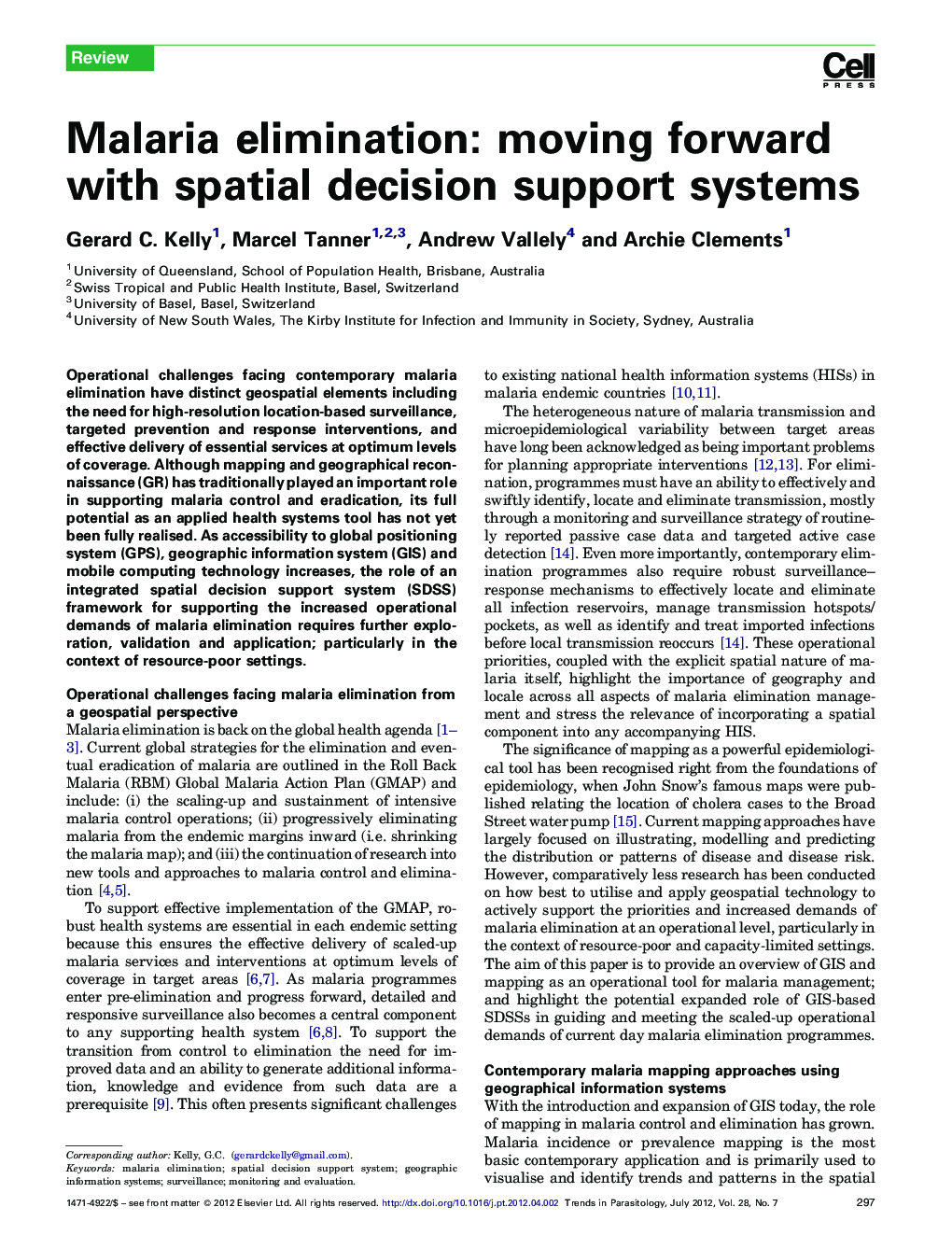| Article ID | Journal | Published Year | Pages | File Type |
|---|---|---|---|---|
| 3423369 | Trends in Parasitology | 2012 | 8 Pages |
Operational challenges facing contemporary malaria elimination have distinct geospatial elements including the need for high-resolution location-based surveillance, targeted prevention and response interventions, and effective delivery of essential services at optimum levels of coverage. Although mapping and geographical reconnaissance (GR) has traditionally played an important role in supporting malaria control and eradication, its full potential as an applied health systems tool has not yet been fully realised. As accessibility to global positioning system (GPS), geographic information system (GIS) and mobile computing technology increases, the role of an integrated spatial decision support system (SDSS) framework for supporting the increased operational demands of malaria elimination requires further exploration, validation and application; particularly in the context of resource-poor settings.
